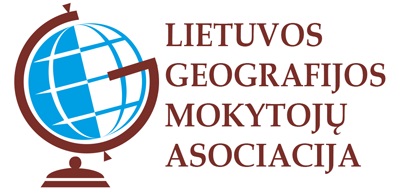Incomplete sentences - the world English dictionary (Intermediate)
Klausimas #1
The World English Dictionary
Microsoft and British publishing house are launching what describe as the first world English dictionary, a work which seeks not only to encompass British or American English, but the way the language is spoken around the world.
The Encarta World English Dictionary, the first time that Microsoft have given the brand name to book, has taken three years compile from the work of 250 lexicographers around the world.
It seeks to bring together the disparate elements English, from the language of Shakespeare to modern day street slang.
The book and the CD-Rom to be published in September draw together the English spoken 10 different countries by one in five of the world's population.
New words
The dictionary includes 400,000 entries and more three million words.
The editors say what marks it as different to previous dictionaries that users will be able to look a word and then delve deeper into regional significance of that word and related to it around the world.
Americans have already been told that phrases including "yadda, yadda, yadda" (blah, blah, blah) and "whasup?" (what's up?) have made to the page.
And British-English speakers may be surprised to learn while they may expect a spaceman to "zap" them with a laser gun, in Malaysia it refers photocopying.
Vocabulary
Editors have to contend with the crossover of vocabulary and grammatical style one group of English users to .
Rabid consumption of TV shows from both America and Australia mean that the average British-English speaker absorbs a lot English vocabulary from both these sources.
American grammar and word order, example, have a habit of sneaking into everyday use the UK.
And although the vernacular trade the United States is rather one-sided, the UK's No1 linguistic export is currently the word "shag" - as seen the latest Austin Powers spoof spy movie.
Dr Whitnail, senior editor the dictionary, says usage of the word followed the popularity of Britpop music and the hit film Four Weddings and a Funeral, than wildlife documentaries on cormorants.
Dictionary building
The 250 lexicographers from North America, Australia, New Zealand, South Africa, the Caribbean and the UK drew on own databases and word banks to come with the most frequently used words, terms and phrases in contemporary English.
The publishers that this worldwide system has ensured that they have covered all the different nuances of many words, instance, the definition of the word "ignorant" which in the Caribbean means "aggressively quarrelsome" rather "dumb".
Dictionary building developed over the past couple of decades a highly technological art.
There are two approaches - one the traditional reporting system, where volunteers watch forms of the written word and alert editors any new words or language usage.
However, in the late 1970s lexicographers began "hoovering up" great swathes of text including everything travel brochures to technical manuals, novels and newspapers.
Every single word is stored a corpus, explained the Oxford English Dictionary's Hugh Bernard - the OED's corpus contains 100 million words - and bespoke software is to highlight frequently used words, new words and patterns of usage.
Of those words, 10% are sourced from spoken language, typically sending volunteers off record hours of everyday conversation.
These recordings analysed and the data stored part of the corpus of words.
The advent of the internet provided another great store of words for dictionary builders even the onerous task of scanning in sheets of text.
Indeed, Microsoft says that without the Internet, the dictionary would been possible as the lexicographers, none of whom were initially told what they were working on, linked to each via the internet.
Some new words included in the dictionary:
Preloved (Australia and New Zealand): Used euphemistically describe an article for sale which second hand.
Toenadering (South Africa) The process getting closer or rapprochement between political parties.
Yancha (HongKong): The social practice of going to tea house, the equivalent of going to a pub or bar.
Puh-leeze (USA): Used facetiously express astonishment, disbelief or indignation.
Quick facts about the English Language:
More 375 million people speak English as a first language.
About the same number have it a second language.
80% of information stored in the world's computers is English.
According to Microsoft almost 85% of Internet home pages in English.
More than 1 billion people believed to be learning English.
Atsakymų variantai rodomi tik registruotiems sistemos eTest.lt vartotojams. Mokytojo registracija, mokinio registracija
Taškų skaičius už teisingą atsakymą: 59





